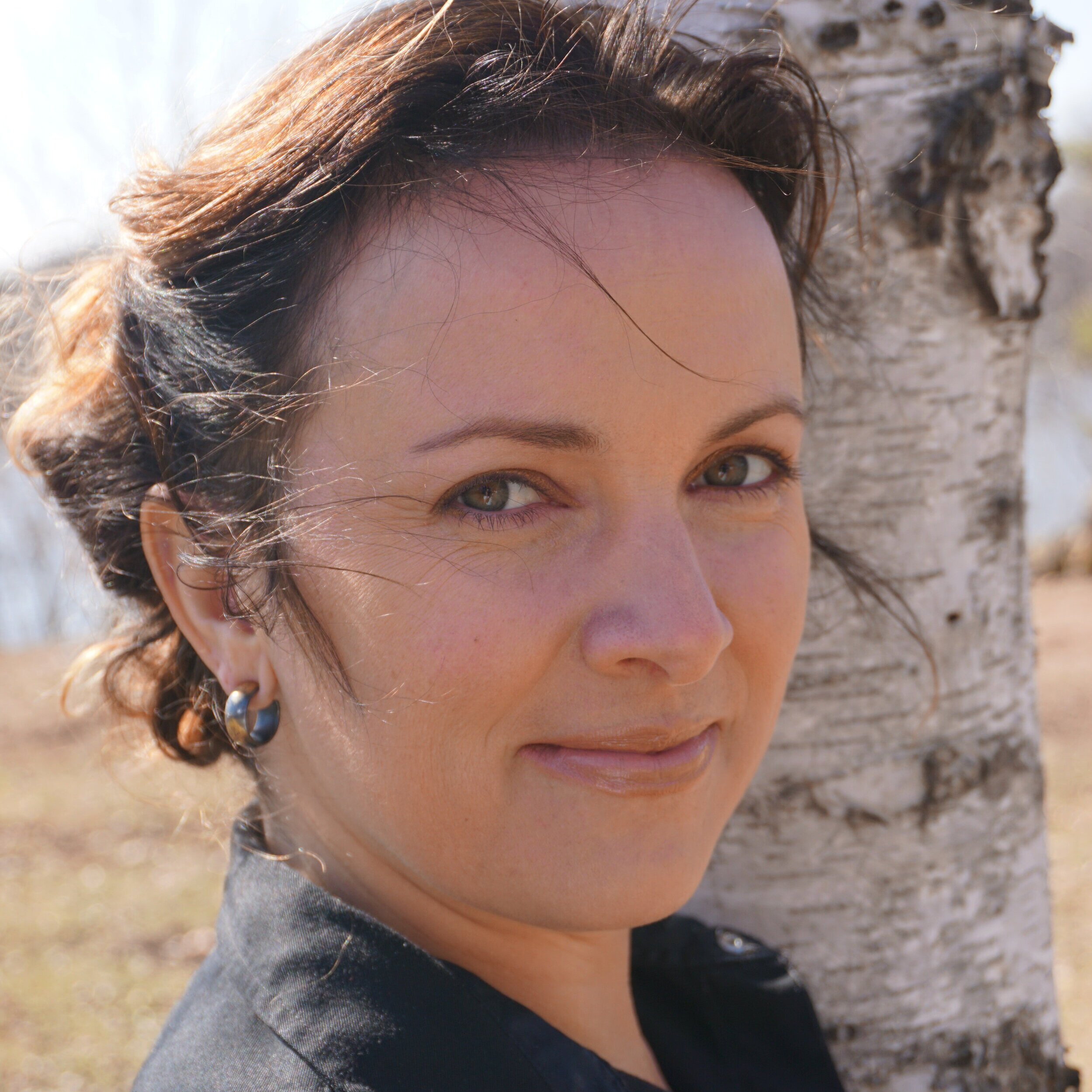Last spring, I drove down empty highways, once frantic with traffic creating a decibel assault, turned strangely serene. Red-tailed hawks perched on light posts felt eerie without the usual commotion. I couldn’t help myself from imagining me gone too, all of us, and the hawk perched despite everything on this empty highway. “Little Isolated Bird” by Brent Carr, recalls the lonely feeling of my drive. The shadow image of a lone bird speaks to a palpable theme; isolation turned loneliness of our innermost desperation during the pandemic.
We have found ourselves in pockets of silence, instances of loneliness with no resolution and often sleep disturbances too. “Overnight Aubade” is a poem of isolated sleeplessness—as depicted in “Insomnia Dreams in the Moonlight” by K. Johnson Bowles—to me the heart is bandaged in the collage and razor blades float all around us in our dreams. However, the poem is also about the craving for connection; how we survive for it.
Most professions don’t require interfacing with daily tragedies and loss. My husband does not work in one of those fields. As an ICU physician, he often works while I sleep and as I lie awake wondering about the state of the pandemic, he is interfacing directly with it. The following mornings I will (maybe) hear stories of the struggle for life and the innate human tendency to resist loneliness.
In “We Almost Lost You” by Varsha Kukafka we read how a mother at ninety-seven still recounts the near-loss of a then infant child to whooping cough and in “Paper Armor” by Cara Haberman, a simple sentiment “—Yes, I promise I will be with you” are the words spoken to a frightened patient. We find ourselves passenger to a drive home in “Homing Signals” by Sophia Wilson. The narrator “can’t sleep at night” and leaves the “city’s pandemically fractured centre” to enter a feeling of pervasive darkness; then light emerges. This light isn’t a natural or supernatural light, but a human-engineered light guiding her home.
Currently, I volunteer in a covid-19 vaccination clinic where without fail an elder’s eyes will warm when I wave them over, they will say something like “I haven’t been waved to in a year” or “Me? It’s not often people talk to me.” In all the darkness and sleepless nights, we are still humans capable of inventing light, capable of preventing empty highways.
Cole W. Williams is the author of Hear the River Dammed: Poems from the Edge of the Mississippi (Beaver’s Pond Press, 2017) as well as several books for children. Her poems have appeared in Martin Lake Journal, Indolent Books online, Waxing & Waning, Harpy Hybrid Review, WINK and other journals and anthologies. Williams is a student in the MFA program at Augsburg University in Minneapolis. Find out more about her work at colewwilliams.com

